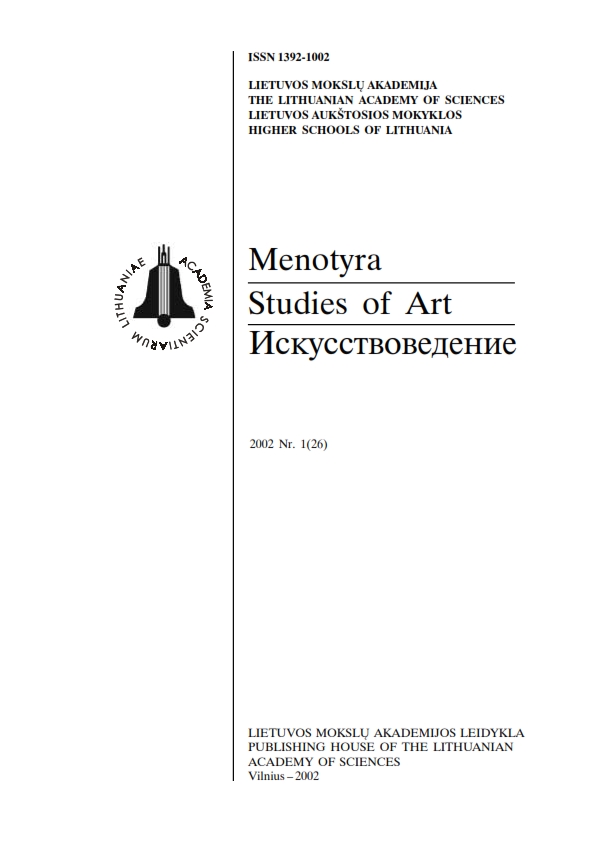Lietuvių kompozitoriai aukštosiose Vokietijos muzikos mokyklose
Lithuanian composers in German institutions of higher musical education
Author(s): Ona NarbutienėSubject(s): Music, Higher Education , History of Education
Published by: Lietuvos mokslų akademijos leidykla
Summary/Abstract: This paper presents a survey of connections of some Lithuanian composers with the German institutions of musical education and discusses the period of formation of Lithuanian professional music in the late 19th - early 20th centuries. Before 1933, the year the State Conservatory was founded in Kaunas, young composers and performers had to leave Lithuania in order to receive higher musical education abroad. The choice of an institution to study was highly dependent on the historical and political conditions of the time. This process may be considered as divided into three stages. The first stage coincides with the period when Lithuania was part of the Russian Empire (1890-1918). Naturally, Lithuanian academic youth tended to choose conservatories and academies that were available within the limits of the empire, that is, mostly those of St. Petersburg, Moscow, and Warsaw. The second stage begins with the years of Lithuanian Interwar Independence (1918^0). In this period, art, as life itself, underwent rapid westernization. The third period is left beyond the scope of this article. It began in 1944 when quite a few Lithuanian artists and students fled to Germany, trying to escape the annexation of the country by the Soviet troops. Notwithstanding the extremely complicated situation, many of them continued their studies in Germany. The most significant influence on Lithuanian music was exerted by the conservatories of Regensburg, Leipzig, and Berlin. Church Music School in Regensburg has played an important role in development of Lithuanian religious music, one of the main assets of Lithuanian culture at the time. Such fathers of our music as Juozas Naujalis (in 1894), Teodoras Brazys (in 1905-07) and, occasionally Česlovas Sasnauskas attended courses in Regensburg. The Leipzig Conservatory is credited with an important place in Lithuanian music history. The first Lithuanian composer to study at this school was Mikalojus Konstantinas Čiurlionis (1901-02), later to become a classic of our music. At this institution he was followed by quite a few Lithuanian composers and performers. Out of this number Juozas Gruodis (1920-1924), Kazimieras Viktoras Banaitis (1922-28), Balys Dvarionas (1920-24, graduated conducting in 1939 as an external student), Jadvyga Čiurlionytė (1920-23), Jonas Bendorius (1920-24), and Juozas Pakalnis (1938-39) deserve special mentioning. The impact of this institution on Lithuanian composers was manifold, depending on mentors and their orientation in particular as well as in general. Berlin, though less remote from Lithuania geographically, was considerably less attended by Lithuanian students. Perhaps submissions for foreigners at the university level were more complicated and even limited here. Balys Dvarionas (1924-26) and Jadvyga Čiurlionytė (1923-25) continued their post-graduate studies in Berlin. Vladas Jakubenas attended post-graduate courses (1928-32) under Franz Schreker at the same academy. His works were highly commended in German press and his graduation work - the Symphony - was performed by the Berlin Radio Orchestra under the baton of Franz Schreker himself. When leaving for Germany, many of Lithuanian composers already had an accomplished vision of Lithuanian national music. Yet, studies in Germany enriched them with a good deal of new creative impulses. Apart from the things mentioned above, in most cases they enjoyed access to the modern music that aroused their eager to enhance Lithuanian music with the new means of musical expression.
Journal: Menotyra
- Issue Year: 2002
- Issue No: 1(26)
- Page Range: 3-6
- Page Count: 4
- Language: Lithuanian

